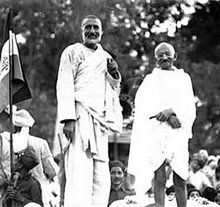Thursday, July 31, 2014
JVP's 5 Principles
1) The siege, assaults on Gaza, and the occupation would not be possible without unconditional financial and diplomatic support provided by the US, so any successful peace agreement requires a change in US foreign policy. It is our job to change these unjust policies and to oppose lobby groups like AIPAC who pressure policymakers into unconditional support for Israel while claiming, falsely, to speak for all Jews.
2) The Israeli government has proven its interest is not peace, but rather acquiring more and more land, for Jews only. Decades of U.S-brokered "peace talks" have provided cover while Israel actually expanded settlements. Israel won't give up its power willingly, and must be pressured. That's why we support Palestinian-led unarmed resistance, including the on-the-ground resistance in Palestinian villages, and the global Boycott, Divestment and Sanctions movement which gives every one of us an opportunity to vote with our wallets.
We already know from Israeli leaders that economic pressure can and is making a difference. We work strategically with thousands of activists and partners to build grassroots boycott and divestment campaigns on campuses, churches and in communities that we can all use to extricate ourselves from corporations that profit from the occupation.
3) Any resolution that has a chance of achieving a lasting peace must address Israel’s 47-year-old occupation, the unequal treatment of Palestinian citizens of Israel, and the creation of what has now grown to be the world's largest refugee population when Israel was established in 1948. Therefore we work to educate ourselves and others about the Nakba (catastrophe), the forced dispossession and expulsion of Palestinians when Israel was created.
4) Sustainable long-term change comes from the grassroots, which is why we dedicate resources to training, organizing and cultivating leaders in over 40 chapters, on campuses, and in networks where we can help. In the last 3 weeks our chapters have organized hundreds of actions, often risking arrest, to raise a cry against those institutions and corporations that aid the Israeli assault on Palestinians.
It's also why we partner, not only with Israeli and Palestinian peace activists, but with a diverse range of groups committed to a just peace--Christians, Muslims, Arab Americans, artists, academics, religious leaders, students, and more. Together, we move mountains.
5) While it is up to Palestinians to lead their liberation movement, we Jews must lead ours. We know that one people's freedom cannot be achieved at the expense of another's, and that Israelis can never be made safe by oppressing Palestinians. We also fight intolerance and racism in Jewish communities, work with young leaders who will replace the out of touch leadership of many Jewish institutions, and support efforts to undo the dehumanization of the oppressor in Israel and all over.
Tuesday, July 29, 2014
The Tolstoyan Imperative
The moment you concede that there is any validity to the proposition that violence is an acceptable method of conflict resolution, you have become part of the problem, not part of the solution.
There can be no exceptions to this fundamental rule of life. None. Any claimed exception is merely a compromise with evil.
Saturday, July 26, 2014
Friday, July 25, 2014
Thursday, July 24, 2014
Gaza
"No, Father. I've a very different idea of love [than you do]," Dr. Rieux told the priest, Fr. Paneloux. "And until my dying day I shall refuse to love a scheme of things in which children are put to torture."
From The Plague by Albert Camus (tr. Stuart Gilbert, slightly modified).
Tuesday, July 22, 2014
Saturday, July 19, 2014
Friday, July 18, 2014
My Son Asked Me The Other Day...
Dad, why is there so much conflict in the Middle East? I said, it's not rocket science. In fact, it's really quite simple. It's like this...
Wednesday, July 16, 2014
Thursday, July 10, 2014
Monday, July 7, 2014
Saturday, July 5, 2014
As We Approach the 100th Anniversary of the Start of the Great European Implosion...
we should trade the usual cant for an historical perspective grounded in the evidence. John Morrow's The Great War: An Imperial History supplies us with just that:
Triumphs and memorials notwithstanding, the Great War imparts a sense of a tragedy of enormous proportions. Europeans, in their hubristic determination to rule the rest of the world, destroyed their own. The class-bound and imperialist governments of the time willingly consigned the men of their countries and empires to unparalleled slaughter, and expended their wealth and knowledge to improve and increase the implements of destruction. Their arrogance and exhortatory, excessive propaganda drove them to become the agents of their own annihilation. Their approaching exhaustion and collapse finally ended the conflict. The Great War originated in imperialism; the victors gained in empire, while the losers not only lost their empires but also their own imperial states. Disillusion and despair gripped all, because any reason, any aim, any goal, any gain, and any commemoration paled before the havoc they had wrought. No peace in the conditions of 1919 could lay to rest the demonic passions that four years of war had evoked. The war had solved no problems before it and left many more in its wake, which gave rise to its even more destructive spawn.
pp. 322-323.
Subscribe to:
Posts (Atom)










